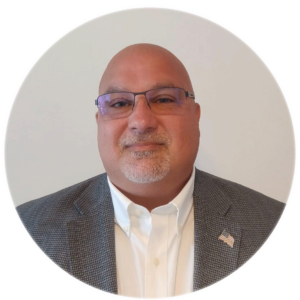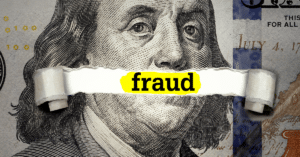Working in an insurance brokerage means being at the heart of strategic planning, sales goals, and the trusting relationships you build with your clients. That puts you in a strong position to spot managed care fraud schemes.
When you report managed care fraud, you protect consumers, support honest brokers, and strengthen the healthcare system. Plus, if your information leads to a successful case, you may even qualify for a financial reward of up to 30% of any funds recovered by the government. This guide shows you what to watch for and how to report managed care fraud with confidence.
What is Managed Care Fraud?
Managed care insurance fraud occurs when Managed Care Organizations (MCOs) or insurance agencies use misleading tactics to boost revenue from plans like Medicare Advantage or Medicaid managed care. It can occur at the corporate level, within regional teams, or inside sales operations. These schemes to boost revenue often lead to illegal kickbacks for those involved.
In insurance brokerage settings, it often shows up as pressure on brokers to sell plans that do not match a person’s needs, or as practices that limit fair access to coverage. Your day-to-day work gives you a clear view of these patterns, which is why your observations matter.
Red Flags Brokers Should Watch For
Certain patterns may signal that something is out of place in your brokerage. Watch for these signs:
- Improper Enrollment: Using Special Enrollment to fraudulently enroll beneficiaries into managed care plans throughout the year outside of the established annual or open enrollment periods.
- Manipulation of Medicare Advantage Enrollments to Inflate Premiums. If you are urged to move clients into higher-cost plans despite clear needs that fit a lower tier, take note. This can raise company revenue without improving care.
- Denying Access to Certain Plans for Financial Gain. Watch for directives that steer specific groups away from plans they qualify for. Limiting choice to meet revenue goals is a warning sign.
- Pressure to Prioritize Profit Over Consumer Needs. If scripts, coaching, or sales targets push you to ignore suitability, pause. Suitability and documented needs should drive recommendations.
- Unusual Pressure to Enroll in Higher-Tier Plans. Tight timelines, escalations, and repeated nudges to close at the top tier, without strong justification, signal a problem.
- Discriminatory Practices Targeting Vulnerable Populations. Any tactics that make it harder for disabled individuals or other protected groups to access plans should be flagged immediately.
- Lack of Transparency on Plan Details or Commissions. If plan features, networks, or commissions are unclear, or change without explanation, treat it as a risk indicator.
When you see more than one of these signs together, the likelihood of managed care fraud increases. Managed care fraud affects real people and public programs. Consumers may pay more for coverage than they need. Taxpayers bear higher costs. Trust in the healthcare system suffers.
By acting early, you can help correct the course, support fair competition, and improve the experience for the clients you serve. Keeping calm, clear notes will help you sort out the details that can help your whistleblower attorney determine if you have a case.
How to Report Managed Care Fraud
You can report MCO fraud in a few straightforward steps. The process is manageable, and you can get guidance at every stage.
- Document What You See. Keep your notes simple and factual, focusing on dates, instructions, plan names, and patterns. Save any relevant emails, scripts, or reports that demonstrate how enrollments were guided. Pay special attention to suitability concerns, plan access issues, and any discrepancies in disclosures, as these details are crucial.
- Speak with an Experienced Whistleblower Attorney. A trusted legal team can review your information and guide you on how to report MCO fraud. They will help you understand the process, the timeline, and your role in a potential case, ensuring you are informed and prepared.
- File with Confidence. Your attorney will assist you in submitting your information to the appropriate authorities. If your case is successful, you could be eligible for a reward of up to 30% of any government recovered funds. By coming forward, you’ll help clients, colleagues, and the programs that serve them.
This pathway keeps things simple. You bring your frontline knowledge. Your legal team handles the steps. Together, you help correct misconduct and encourage better standards across the industry.
Your Role in Managed Care Matters
As a broker, you help people choose plans they rely on. When you report managed care fraud, you support that mission. You stand up for clients, uphold fair practices, and help return funds to public programs. It is good for your clients, good for your business community, and good for the system as a whole.
Ready to talk through what you’ve seen? Reach out for a free consultation with DJO Whistleblower Law Group to discuss your concerns about managed care fraud. As a contingency law firm, we do not get paid unless we win your case. We will work to help you secure the maximum reward, up to 30% of any funds recovered by the government, while making the reporting process clear and manageable.

authored by Christopher J. Piacentile
Director of Investigations DJO Whistleblower Law Group


